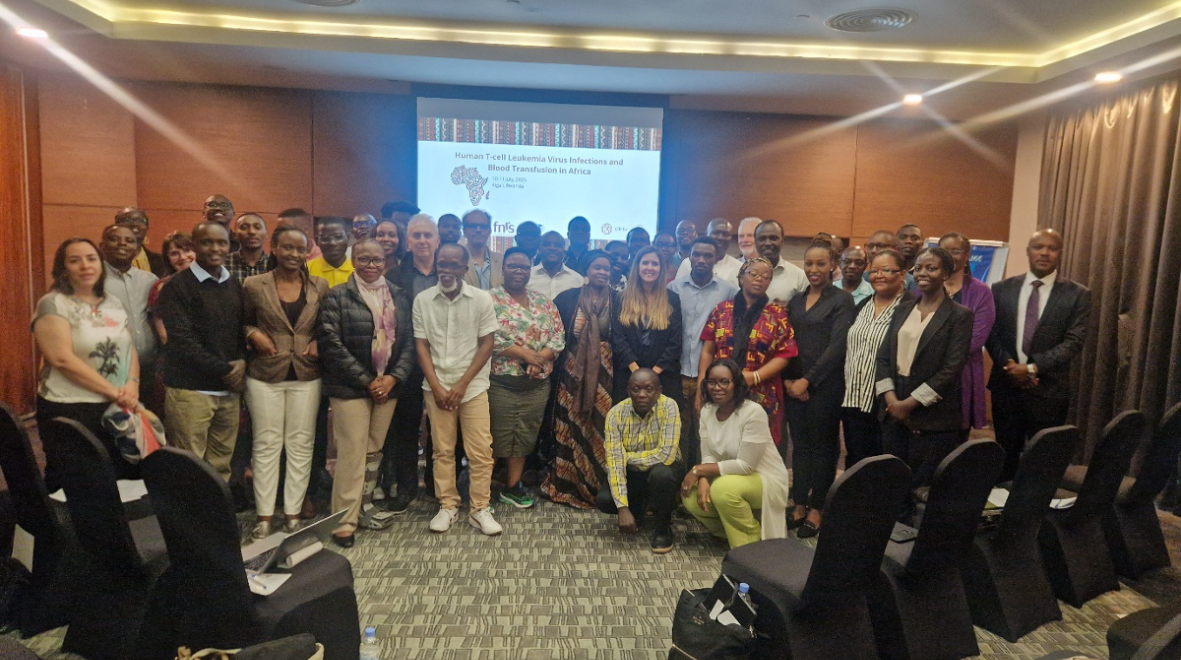
HTLV-1 is a little known but serious virus that can cause life-threatening illnesses, including blood cancer and neurological disease. In many African countries, there is still a lack of research and policies to address it. Dr Carolina Rosadas, Research Fellow in Imperial’s Department of Infectious Disease, writes about bringing together scientists, health officials, policymakers, and community representatives from 18 countries for a groundbreaking workshop in Rwanda – sparking new collaborations, research networks, and strategies to combat this overlooked infection.
Based in the Department of Infectious Disease, I am a Research Fellow focusing on HTLV-1 – an understudied infection that disproportionately impacts underserved communities, particularly in Africa. HTLV-1 can cause severe and often fatal conditions, including blood cancer and neurological disease. There is no treatment for this life-long infection, but prevention is possible.
Despite recent global advances and the formal recognition of HTLV as a priority by the World Health Organization (WHO), many countries in Africa still lack sufficient data and policies to address it. My project aimed to promote local research and help translate knowledge into policy by encouraging multidisciplinary and multi-stakeholder engagement.
To achieve this, I organised a workshop in Kigali, Rwanda, in collaboration with Professor Jean-Claude Twizere from the University of Rwanda and Liege University, Maureen Kidiga, African Representative at the International Retrovirology Association, and Professor Antoine Gessain from the Pasteur Institute.
The two-day meeting brought together participants from 18 countries: 12 from Africa and six from other regions. Attendees included Dr. Thato Chidarikire, WHO-AFRO representative, as well as a representative of people living with HTLV-1. The Ministries of Health of Rwanda, Seychelles and Botswana were also represented. Patricia Watber, an Imperial PhD student from Uganda, presented her research on Adult T-cell Leukaemia/Lymphoma (ATL), the blood cancer caused by HTLV-1.
The event provided a valuable platform to engage with local experts, policymakers and affected communities; define research priorities; identify potential collaborators; and shape strategies for advancing regional research. A particularly meaningful moment for me was reconnecting with my former MSc student from Imperial, now a senior staff member at Botswana’s Ministry of Health central laboratory. We are now collaborating to start a HTLV research programme in Botswana.
The meeting was a great success, with early results already emerging. One key result was the establishment of the HTLV CARE Africa Network, aimed at promoting Collaboration, Awareness, Research and Education on HTLV across the continent. Following the event, we prepared and shared a meeting summary and policy briefing with both WHO Headquarters and WHO-AFRO. The group is now preparing a manuscript for submission to a peer-reviewed journal and actively seeking seed funding for cross-country epidemiological data collection to support a future grant proposal.
I would like to thank all participants, who contributed so enthusiastically, and to the Imperial Global Connect Fund for supporting this initiative. This was a unique experience and I would strongly encourage others to take advantage of the Fund, which provides opportunities for the Imperial community to establish impactful, long-term collaborations with global partners through the university’s international hubs. It marks a significant step forward for HTLV research in Africa, and I am confident this platform will foster lasting collaboration between Imperial researchers and local teams. I am looking forward to what comes next.